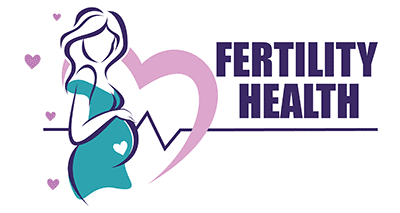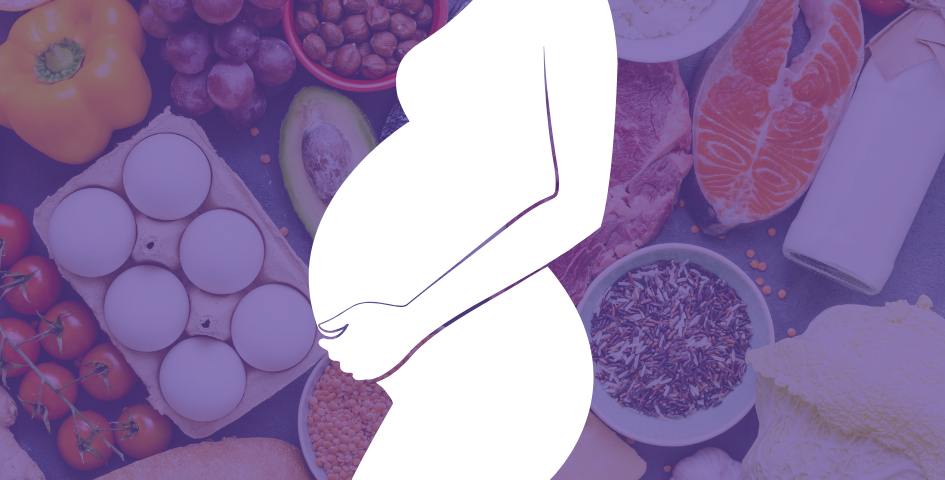Table of Contents
- Why Does What You Eat Directly Affect Your Eggs?
- The Critical Role of Metabolic Health and Insulin
- Key Nutrients: The Building Blocks of Conception
- The Power of the Mediterranean Diet for Fertility
- Nutrition for Paternal (Sperm) Health
- Key Takeaways and Next Steps
- Frequently Asked Questions (FAQ)
1. Why Does What You Eat Directly Affect Your Eggs?
The link between your diet and your chances of conceiving is not just anecdotal; it is driven by cellular science. Your diet provides the essential building blocks for the entire reproductive cycle.
How Does Nutrition Influence Oocyte (Egg) Health?
A healthy egg—or oocyte—requires a delicate balance of energy to mature correctly. The quality of your eggs relies heavily on the environment they develop in. This development process takes about 90 days, making preconception nutrition incredibly important.
- Cellular Energy (Mitochondria): The egg is the largest cell in the body and requires immense energy for growth and division. This energy is produced by the mitochondria. Specific nutrients (like CoQ10 and B vitamins) from your diet fuel this process. Poor diet can lead to mitochondrial dysfunction, a major cause of poor egg quality.
- Preventing Oxidative Stress: Poor dietary choices can lead to increased oxidative stress within the egg’s cells and the surrounding follicular fluid. This stress damages DNA and cellular structures, a primary factor linked to irregular menstrual cycles, fertilization difficulties, and lower chances of a viable pregnancy. Antioxidants found in vibrant foods are the defense.
2. The Critical Role of Metabolic Health and Insulin
Your metabolism—how your body converts food into energy—is the single most important factor that connects diet and egg quality.
Understanding Insulin Resistance and Ovulation
Insulin is the hormone that manages blood sugar. When you eat refined carbohydrates or excessive sugars, your body constantly releases insulin. Over time, cells become less responsive, leading to insulin resistance.
- In Women: Insulin resistance (common in conditions like PCOS) can cause the ovaries to produce excess androgens (male hormones). This hormonal imbalance directly interferes with the signaling needed for a healthy follicle to mature and release an egg, leading to anovulation (lack of ovulation).
- The Solution: By adopting a fertility-focused diet that prioritizes complex, low-glycemic index foods, you are stabilizing your blood sugar and reducing insulin demands, which helps normalize the hormone environment for successful ovulation.
3. Key Nutrients: The Building Blocks of Conception
Focusing on specific micronutrients and dietary patterns can provide powerful support for both male and female fertility.
Which Nutrients are Most Essential for Reproductive Health?
| Nutrient | Primary Source | Role in Fertility (Expanded) |
|---|---|---|
| Folic Acid/Folate | Dark leafy greens, lentils, fortified grains | Crucial for preventing neural tube defects and essential for healthy cell division and DNA synthesis in both egg and sperm. |
| Iron (Non-heme) | Beans, spinach, fortified cereals | Studies show that consuming iron from non-meat sources may prevent ovulatory infertility. Vital for red blood cell health and oxygen transport. |
| Omega-3 Fatty Acids | Salmon, walnuts, flaxseeds | Reduces inflammation throughout the reproductive tract, helps balance reproductive hormones, and improves blood flow to the uterus. |
| Vitamin D | Fatty fish, sunlight, fortified milk | The “sunshine vitamin” is linked to improved semen quality, implantation rates, and the regulation of reproductive hormones. |
| Antioxidants (CoQ10, Vitamins C & E) | Berries, citrus, nuts, seeds | Fights severe oxidative stress, protecting both egg and sperm DNA from damage and improving mitochondrial function. |
| Zinc | Oysters, beef, pumpkin seeds | Absolutely essential for sperm production and motility in men, and key for proper cell division in women’s eggs. |
4. The Power of the Mediterranean Diet for Fertility
While many “fad diets” exist, the one dietary pattern consistently supported by clinical research for improving fertility outcomes is the Mediterranean Diet.
What Does the Mediterranean Diet Involve?
- High Intake of: Vegetables, fruits, whole grains, nuts, seeds, and extra virgin olive oil (as the main source of fat).
- Moderate Intake of: Fish (rich in Omega-3s) and poultry.
- Low Intake of: Red meat, processed foods, and sweets.
This diet’s focus on anti-inflammatory, antioxidant-rich foods naturally aligns with the nutritional needs of the reproductive system, helping to reduce oxidative stress and optimize hormonal balance, leading to higher pregnancy rates.
5. Nutrition for Paternal (Sperm) Health
Fertility is a shared journey. Paternal diet is just as important, as the quality of sperm (count, motility, and morphology) is heavily reliant on nutrition.
- Sperm DNA Protection: Sperm take about 70-80 days to fully develop. During this time, they are highly vulnerable to oxidative stress caused by a poor diet. Antioxidants (Vitamins C, E, Zinc, and Folate) are crucial for protecting sperm DNA integrity.
- Key for Motility: Nutrients like Zinc and Omega-3 fatty acids are directly involved in giving sperm the energy and structure they need for healthy movement (motility).
6. Key Takeaways and Next Steps
- Prioritize Quality Over Quantity: Focus on nutrient density (vitamins, minerals, antioxidants) to improve egg and sperm quality.
- Stabilize Metabolism: Adopt a diet to keep your blood sugar steady, which normalizes hormone levels critical for ovulation.
- Start Now: Begin your fertility-focused diet at least 90 days before you plan to conceive to positively influence gamete quality.
If you have underlying metabolic conditions like PCOS or diabetes, or are preparing for fertility treatments, speaking with a registered dietitian specializing in reproductive health can provide the personalized dietary plan you need.
Ready to Discuss Your Fertility Journey?
Schedule a consultation with our fertility specialists today to create a personalized plan that includes both medical treatment and strategic nutritional guidance.
7. Frequently Asked Questions (FAQ)
Does eating pineapple core help with implantation?
No, this is a common myth. While pineapple contains bromelain (an enzyme sometimes linked to reduced inflammation), there is no scientific evidence to support the claim that eating the core after an embryo transfer or IUI improves implantation rates. Focus instead on a consistently nutrient-rich diet.
Should I cut out caffeine entirely when trying to conceive?
The recommendation is to **limit, not necessarily eliminate,** caffeine. Most experts recommend keeping intake under 200 milligrams per day (about one 12-ounce cup of coffee). High levels of caffeine consumption are linked to an increased risk of miscarriage.
Is there a specific vitamin or supplement I should take for egg quality?
While a balanced prenatal vitamin is essential, supplements like **CoQ10 (Ubiquinol)** are often recommended by fertility specialists to improve mitochondrial function and energy production in the egg, especially for women over 35. Consult your doctor before starting any new supplement regimen.
How long before I see the effects of a fertility diet?
Since the egg and sperm maturation cycles take between 70 and 90 days, you should commit to your new fertility diet for a minimum of three months to see the most significant impact on the quality of your gametes.

